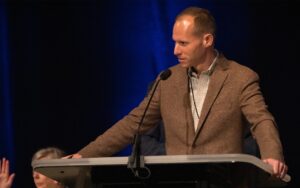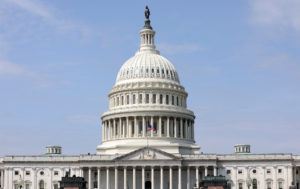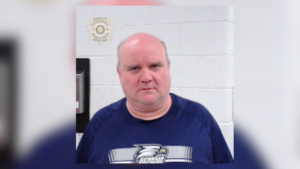
WASHINGTON (BP)–Mental illness, not terminal illness, may now be grounds for physician-assisted suicide in Switzerland.
A Feb. 2 decision from the highest Swiss court opened the door for doctors to prescribe lethal drugs to people with serious mental illnesses, according to the Associated Press.
The Federal Tribunal likened mental illness to a physical one in its opinion, saying, “It must be recognized that an incurable, permanent, serious mental disorder can cause similar suffering as a physical (disorder), making life appear unbearable to the patient in the long term.
“If the death wish is based on an autonomous decision which takes all circumstances into account, then a mentally ill person can be prescribed sodium-pentobarbital and thereby assisted in suicide,” the court wrote.
In determining whether a person should receive drugs to commit suicide, a distinction should be drawn between someone with a “curable, psychotic disorder” requiring treatment and one with “sound” judgment who has made a “well-considered and permanent decision,” the court said.
Bioethics specialist Wesley Smith said the ruling provides further evidence of the expansive agenda of assisted-suicide advocates.
“Anyone who asserts seriously that euthanasia/assisted suicide is ‘only for the terminally ill for whom nothing else can be done to alleviate suffering’ just doesn’t want to see the writing on the wall,” Smith wrote online at bioethics.com. “[D]eath on demand — the ultimate destination of the nihilistic euthanasia movement — has come to Europe.”
It may already have arrived in the United States as well, Smith said.
“Recall that Oregon does not explicitly require competence or mental health to qualify for assisted suicide, but rather that the patient merely be ‘capable,’ meaning able to communicate a medical decision,” Smith said.
Oregon is the only state that has legalized physician-assisted suicide.
The court ruling appears to be another step in achieving the goals of Dignitas, the Swiss organization that promotes assisted suicide and has provided aid in more than 600 such deaths since 1998, according to the International Task Force on Euthanasia and Assisted Suicide.
Dignitas founder Ludwig Minelli said in a September speech in Great Britain, the task force reported, “If you accept the idea of personal autonomy, you can’t make conditions that only terminally ill people should have this right. We should accept generally the right of a human being to say, ‘Right, I would like to end my life,’ without any pre-condition, as long as this person has capacity of discernment.”
The Swiss judges ruled against the 53-year-old man who brought the suit, though they expressed support for assisted suicide for the mentally ill. They rejected the man’s request for lethal drugs, saying a medical exam was needed for the bipolar disorder patient.
The Netherlands and Belgium have legalized euthanasia.
CONFOUNDING DOCTORS — Hope Ann Webb’s brief life was a lot longer than was predicted, once again demonstrating the fallibility of abortion-minded doctors.
The Lockwood, Mont., girl died in January after an infection attacked her body, according to The Billings Gazette. She was 7 years old, but she had been expected to live only a matter of days after she was diagnosed in the womb with trisomy 18, a condition that results when a baby receives three copies, instead of two, of the 18th chromosome.
Her mother, Teri Webb, rejected their recommendation.
“They told me it would be the humane thing, that there was absolutely no hope,” Webb said, according to The Gazette. “They were wrong. Had I listened to them, we wouldn’t have had seven years of pure joy.”
Because of her affliction, Hope was unable to sit up without help or to talk. She needed care around the clock. Hope’s father left her mother about a year after her birth. Webb quit her job to care for her daughter, depending upon Medicaid, Social Security and other government assistance to provide for their needs.
Hope enjoyed being touched and playing what came to be known as the “coughing game,” in which others coughed to make her laugh and she coughed to make them laugh, according to the newspaper.
Webb expressed no regrets about refusing an abortion.
“I couldn’t live with the what-ifs,” she said, The Gazette reported. “I needed to know I’d given her every possible chance. Is a child too much of an inconvenience if you know there’s going to be health concerns? Is it too much of a financial burden? It’s how you value life. It was worth it, and it helped me focus on what’s important in life.”
CRIST BACKTRACKS — Florida’s new Republican governor, Charlie Crist, apparently has reversed course on funding stem cell research.
Crist announced Jan. 31 a budget recommendation of $20 million to fund research on stem cells that does not require the destruction of human embryos, according to the Florida Baptist Witness. The program would provide grants for experiments using non-embryonic stem cells, as well as embryonic stem cells from lines, or colonies, approved under a policy instituted by President Bush.
The previous week, Crist seemed to endorse a bill requiring the state to fund embryonic stem cell research (ESCR). In August, he told the Witness he was “pro-life,” but he said he would back ESCR funding. He said such grants would not create “ethical concerns for me when you view the facts that those stem cells were going to be destroyed anyway,” the Witness reported. Crist also criticized Bush’s veto last year of legislation to fund ESCR, according to the Witness.
The Witness reported the new governor told newspaper editors earlier Jan. 31 in Tallahassee about the controversy over stem cell funding, “I know it gives angst for some. I think we can do it in a way that doesn’t cause that kind of angst…. I’m pragmatic … I want to be respectful of concerns that they might have. I also want to make progress.”
Bill Bunkley, legislative consultant for the Florida Baptist Convention, told the Witness he was pleased with Crist’s decision.
“I am hopeful that this is the first of many decisions by the governor to validate his professed pro-life convictions,” Bunkley said.
Stem cells are the body’s master cells that can develop into tissues and other cells, providing hope for the treatment of numerous afflictions. Extracting stem cells from an embryo results in the destruction of the days-old human being, but procuring stem cells from non-embryonic sources does not require the donor’s harm.
Bush’s policy bars federal funds for stem cell research that destroys human embryos. His rule allows funds for research only on embryonic stem cell lines already in existence when his policy was announced in August 2001.
ESCR has yet to produce a therapy for human beings, and it has been plagued by the development of tumors in laboratory animals. Research using stem cells from non-embryonic sources — such as umbilical cord blood, placentas, fat and bone marrow — has produced treatments for at least 72 ailments, according to Do No Harm, a coalition promoting ethics in research. These include spinal cord injuries, rheumatoid arthritis, lupus, multiple sclerosis and sickle cell anemia.
CHINA’S HARVEST — The Chinese military is harvesting organs on a grand scale from prison inmates while they are still alive, according to a new report.
Dozens of hospitals and jails in China are involved in the ghastly trade, mostly in organs removed from Falun Gong adherents, the authors said, according to the website news.com.au. David Kilgour, former Canadian secretary of state for the Asia Pacific region, and human rights lawyer David Matas wrote the report, which was released Feb. 1.
The Chinese government denied the charges.
The report said Chinese military hospitals began selling organs for transplants after the government reduced their funding in the 1980s.
“The involvement of the People’s Liberation Army in these transplants is widespread,” Kilgour said at a news conference, according to news.com.au.
Interviews with organ recipients in 30 countries and Canadian hospital personnel who treated more than 100 people who had suspicious transplants in China are included in the report.
In its recommendations, the report urged pharmaceutical companies to refrain from selling organ anti-rejection drugs to China.
The Falun Gong is a meditation sect that has been harshly oppressed by the Chinese government.
–30–















